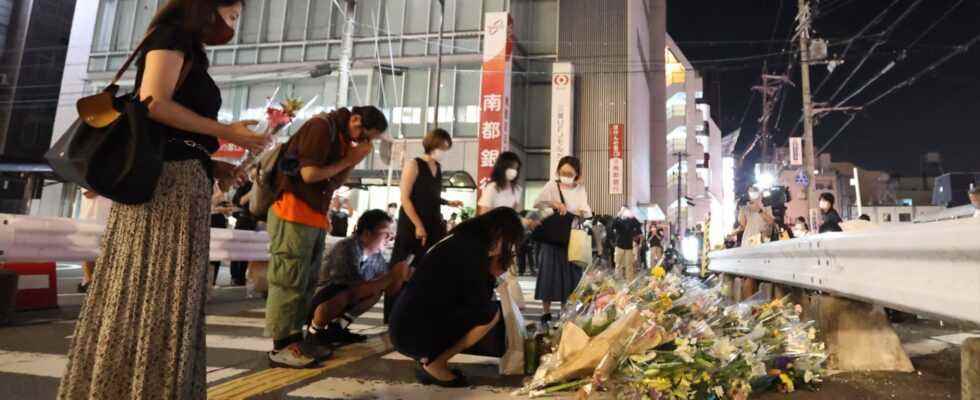Bernard Delattre, edited by Ophelie Artaud
Two days after the assassination of former Prime Minister Shinzo Abe, Japanese people began voting in the senatorial elections. In the vicinity of polling stations, security measures have been considerably reinforced. From a political point of view, the government fears that the electorate will blame a lack of security.
In Japan, voters have started voting to renew half of the upper house of parliament. Senate elections taking place two days after the assassination of former Prime Minister Shinzo Abe. The security arrangements surrounding these elections have therefore been considerably reinforced over the past 48 hours.
Excavations, surveillance, metal detectors…
Yesterday, ambulances were positioned near stations or major intersections where the last outdoor rallies of the campaign took place, and a large number of police officers in uniform or in civilian clothes watched the participants. The authorities fear what is called “copycat”, that is to say individuals who would seek to reproduce the attack perpetrated this Friday.
More generally, the government is on the teeth. He fears that the electorate will blame him for a form of lightness in terms of security, since the police have recognized the existence of flaws in the protection system of Shinzo Abe. Metal detectors have therefore been installed at the entrance to most of the 48,000 polling stations in the country. And voters were searched before entering. This is unheard of in Japan.
The assassination of Shinzo Abe could have an electoral impact. In senatorial elections, the participation rate is never very high. But after what happened, voters could mobilize. Some analysts also count on a legitimist reflex from the electorate. In such a dramatic context, many Japanese could judge that the time is definitely not for political alternation and therefore vote in favor of stability and security, which would be beneficial for the ruling coalition.
